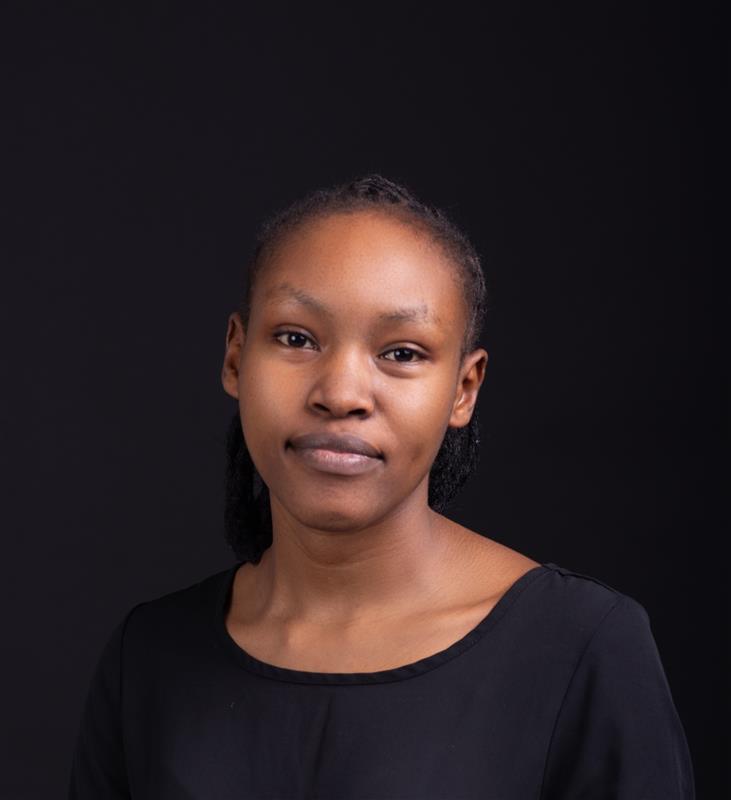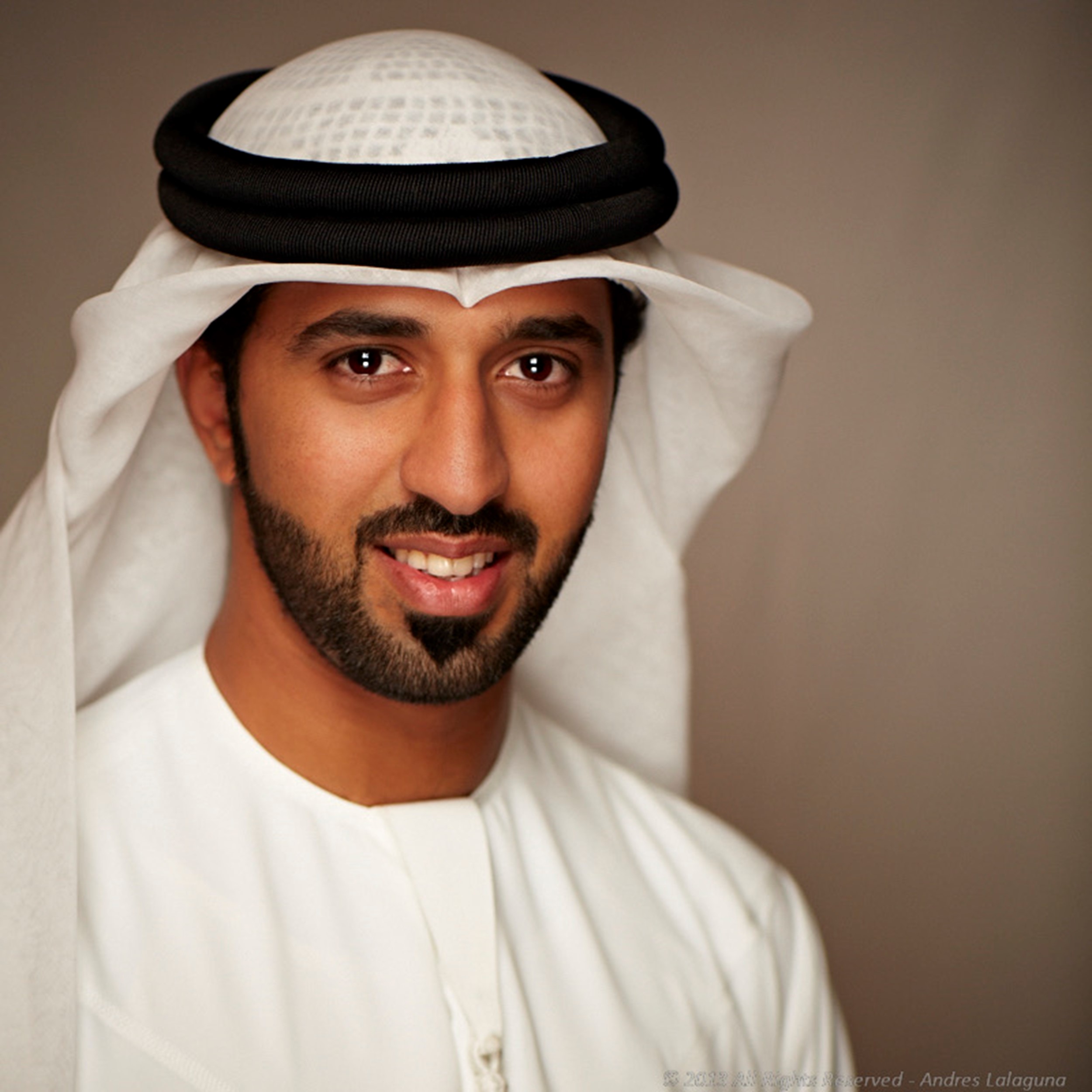Meet the Speakers

Dr. Pedram Hassanzadeh
Dr. Pedram Hassanzadeh is an Associate Professor at the University of Chicago’s Department of Geophysical Sciences, the Committee on Computational and Applied Mathematics, and the Data Science Institute. He received his Ph.D. in geophysical turbulence and his M.A. in applied mathematics from UC Berkeley in 2013. From 2013 to 2016, he was a Ziff Environmental Fellow at the Harvard University Center for the Environment and the Department of Earth and Planetary Sciences. He received a CAREER Award from the NSF in 2021 and a Young Investigator Award from the Office of Naval Research in 2020. He leads the Climate Extremes Theory and Data (CeTD) group, which focuses on integrating theory, simulations, observations, and machine learning techniques to understand the dynamics and future changes of extreme weather events in a changing climate. He also leads the AI for Climate (AICE) Initiative, a joint program of the Data Science Institute and the Institute for Climate and Sustainable Growth (ICSG). This initiative emphasizes interdisciplinary integration of AI with fundamental domain knowledge to accelerate and transform climate research, with a focus on both scientific advances and societal impacts. Together with Michael Kremer and Amir Jina, he co-directs ICSG’s Human-Centered Weather Forecasts (HCF) Initiative, which leverages the power of AI to innovate, benchmark, and democratize weather forecasts tailored to what citizens on the ground need to know.

Dr. Souhaib Ben Taieb
Dr. Souhaib Ben Taieb is an Associate Professor at Mohamed bin Zayed University of Artificial Intelligence (MBZUAI) in Abu Dhabi, United Arab Emirates. He was previously a Lecturer (Assistant Professor) in Statistical Machine Learning at Monash University in Melbourne, Australia, and an Associate Professor of Machine Learning at the University of Mons in Belgium. He received his Ph.D. and M.Sc. in Computer Science from the Free University of Brussels (ULB), Belgium, and subsequently held a postdoctoral fellowship in the Spatio-Temporal Statistics and Data Science group at KAUST. He was awarded a Doctoral Research Fellowship from the Belgian National Fund for Scientific Research (FNRS) and received the Solvay Award for the best Ph.D. thesis. His research spans artificial intelligence and statistics, with interests in probabilistic machine learning, generative modelling, time series analysis, forecast verification, and anomaly detection. He also engages in joint research with industrial partners, e.g., Huawei, John Cockerill, and Ion Beam Applications. He currently serves as an Associate Editor for the International Journal of Forecasting, an Area Chair for AISTATS, and regularly reviews for leading conferences and journals in machine learning and statistics. He was recognized as a Top Reviewer at ICML in 2020 and 2024.
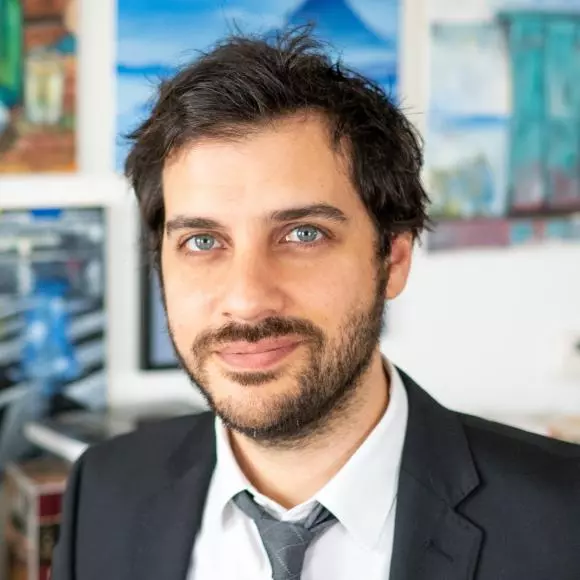
Dr. Amir Jina
Dr. Amir Jina is an Assistant Professor at Harris Public Policy and a Senior Fellow at the Energy Policy Institute of Chicago (EPIC). Amir's research in environmental and development economics focuses on the role of the environment in shaping how societies develop. This research combines economics with methods from climate science and remote sensing to understand the impacts of climate in both rich and poor countries, and has involved fieldwork related to climate change adaptation with communities in India, Bangladesh, Kenya, and Uganda. Prior to University of Chicago, Amir was a visiting scholar at the University of California, Berkeley, working on the economic analysis of the Risky Business initiative, an independent assessment of the economic risks posed by a changing climate in the US. Amir is a founding member of the Climate Impact Lab - an interdisciplinary collaboration examining the socioeconomic impacts of climate change around the world - and was also a Postdoctoral Scholar at the Economics Department of University of Chicago. Amir received a Ph.D. in Sustainable Development and M.A. in Climate and Society both from Columbia University, B.A.s in Mathematics and Theoretical Physics from Trinity College, Dublin, and previously worked with the Red Cross/Red Crescent in South Asia.

Dr. Katie Kowal
Dr. Katie Kowal is the Weather Forecast Lead for the Human Centered Weather Forecasts Initiative Indian Monsoon Onset project at the University of Chicago, where she manages the operational deployment of the Indian monsoon onset forecasts and leads curriculum development for AIM for Scale’s AI weather training program. Previously, she was a scientist at the National Oceanic and Atmospheric Administration (NOAA) Climate Prediction Center International Desk, supporting multiple national meteorological services in Latin America and the Pacific Islands with operational forecasts and research on improving subseasonal to seasonal forecasts. She holds a DPhil in Hydrology and an MSc in Environmental Change and Management from the University of Oxford as a Rhodes Scholar and a BA in Physics and Political Science from Lewis & Clark College. Earlier in her career, she was a science policy fellow at the Science and Technology Policy Institute, supporting the White House Office of Science and Technology Policy to develop national policy on regulating nuclear space launch approvals and improving critical infrastructure resilience to extreme events including space weather.
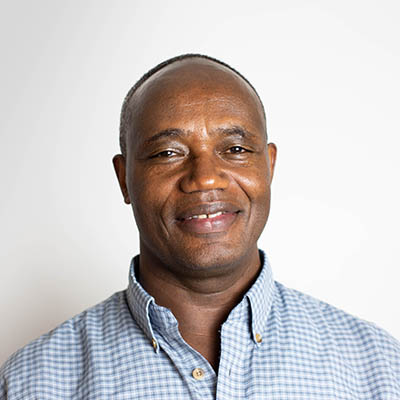
Dr. Tufa Dinku
Dr. Tufa Dinku is a Senior Research Scientist at the International Research Institute for Climate and Society (IRI), Columbia University, with over three decades of experience in climate science, climate data, and climate information services — including 12 years as an operational meteorologist in Ethiopia and 20 years as a climate scientist at IRI. His research focuses on developing and evaluating methods and tools that leverage remote sensing and reanalysis products to address the challenges posed by inadequate climate datasets, particularly in Africa. Beyond research, Dr. Dinku has made significant contributions to applying climate science for societal benefit through the development and implementation of the transformative ENACTS (Enhancing National Climate Services) approach. Implemented in over 20 developing countries, ENACTS is a multi-faceted initiative designed to integrate climate knowledge into national decision-making. It delivers spatially and temporally complete climate datasets extending over 40 years, co-produced climate information products accessible via online “maprooms,” and capacity-building programs that enable users to interpret and apply these products in diverse sectors. Dr. Dinku collaborates extensively with National Meteorological Services and with governmental and non-governmental organizations across Africa on projects that enhance the generation, dissemination, and use of climate information for decision-making in agriculture, food security, health, and disaster risk management. He has also been leading the development and implementation of training curricula on the use of climate information climate risk management in the different sectors

Dr. Koteswararao Kundeti
Dr. Koteswararao Kundeti has been working as a Senior Climate Analyst at NCM in Abu Dhabi since January 2023. His research focuses on Climate Variability and Change, Weather/Climate Extremes, and Renewable Energy Studies. Prior to joining the NCM, Kundeti was an Assistant Professor at Azim Premji University in India. Moreover, he spent five years to his role as a Research Scientist at the Indian Institute of Tropical Meteorology (IITM) in Pune, India, and also worked as a postdoctoral researcher at Seoul National University in South Korea. Kundeti holds both his Master’s and Ph.D. degrees in Meteorology from Andhra University, India. Dr. Kundeti was a contributed author for the IPCC 5th Assessment Report, for chapter 14 of the Working Group 1: Climate phenomena and their relevance for future regional climate change. Also, contributed author for WMO reports on State of the Climate in Asia (2022, 2023 and 2024). Furthermore, he was one of the lead authors for the Climate Change report concerning the Indian Region, published by the Ministry of Earth Sciences, Government of India. Dr. Kundeti has over 45 publications in various National/International journals and has also contributed to book chapters.
Genevieve Flaspohler
Genevieve Flaspohler is the Executive Director and co-founder of Rhiza Research, a nonprofit developing open technology to close global gaps in climate, energy, and environmental data. She leads the SheerWater Program, a Gates Foundation–funded initiative focused on improving equity in weather intelligence by partnering with national meteorological agencies to deliver actionable forecasts across timescales—from short-term to subseasonal—to smallholder farmers in East Africa. Genevieve holds a PhD in Electrical Engineering and Computer Science from MIT & Woods Hole Oceanographic Institution Joint Program, where she developed scientific machine learning models for weather, climate, and environmental sensing.

Jonathan Mestres
Jonathan Mestres is a lead AI scientist at G42, where he leads the technical development of the Climate Tech Lab. With over a decade of experience, he has a strong theoretical foundation in AI and a proven track record of applying novel AI and ML methods to real-world challenges. He specializes in generative AI-driven weather and climate solutions, developing high-resolution weather forecasts for the Middle East. His expertise spans multiple domains, including climate, transport logistics, supply chain resilience, biosecurity, and investment decisions. Jonathan has extensive experience working with both government and private industry. Before joining G42, he was a research scientist at CSIRO, Australia. He holds a Ph.D. in artificial intelligence and machine learning and is committed to using AI for positive social and environmental impact, driving sustainability through cutting-edge technology.

George Sserwadda
George Sserwadda is a dedicated TAHMO Field Engineer in Uganda with background in engineering and geo-information science. He holds a BSc in Computer Engineering from Makerere University and is currently pursuing an MSc in Geo-Information Science at the same institution, focusing his research on utilizing deep learning models to enhance weather forecasting in the Lake Victoria Basin. Since officially joining TAHMO in 2017, George has leveraged his 4 years of experience as a radio frequency planning and optimization engineer in the telecommunications industry to bring valuable expertise to his role, where he also currently supports the Quality Assurance and Quality Control (QAQC) team.
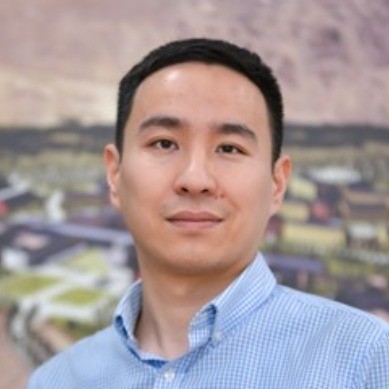
Dr. Erkin Isaev
Dr. Erkin Isaev is a project officer at the World Meteorological Organization (WMO). With over 11 years of experience in both national and international roles, he has held various positions, including hydrometeorologist, chief specialist in agrometeorology, and head of the Modeling Department at the Agency for Hydrometeorology of Kyrgyzstan. He has also worked as a consultant in numerical weather prediction, climate modeling, drought and flood modeling for the World Bank Group, the UN Food and Agriculture Organization, and the UN Economic and Social Commission for Asia and the Pacific. He has developed applied, interdisciplinary solutions in disaster risk management, integrated water management, extreme weather and climate impact-based forecasting, and the application of AI/ML in early warning and anticipatory actions within the agriculture sector. Erkin holds a PhD in agrometeorology, meteorology, and climatology, as well as a bachelor’s degree in hydrometeorological modeling.
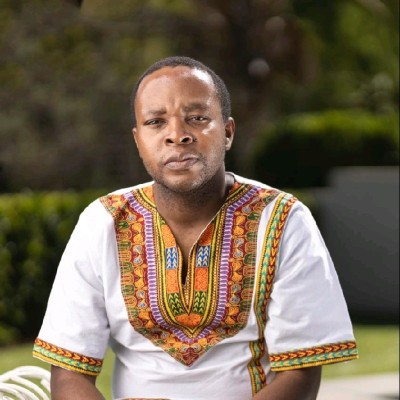
Dr. Rendani Mbuvha
Dr. Rendani Mbuvha is Co-Founder of AfriClimate AI and Associate Professor of Actuarial Science at the University of Manchester. AfriClimate AI is a grassroots research community advancing artificial intelligence for climate resilience in Africa, with its flagship project Forecast4Africa, supported by Google.org focused on co-developing localised AI-based weather models for the African continent in partnership with National Meteorological Services. Rendani also holds honorary research positions at the United Nations University Institute for Water, Environment and Health (UNU‑INWEH) and University College London (UCL). Previously, He was the Google DeepMind Academic Fellow at Queen Mary University of London and an Associate Professor at the University of Witwatersrand, Johannesburg. His research spans probabilistic inference in machine learning, renewable energy modeling, and computational finance. He is a Fellow of the Institute and Faculty of Actuaries (UK) and a Chartered Enterprise Risk Actuary (CERA).
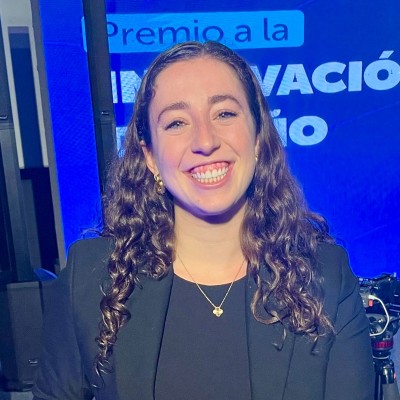
Olivia Graham
Olivia Graham is a Product Manager at Google, where she leads initiatives that leverage artificial intelligence for social impact. Her current work focuses on developing advanced AI models to address critical environmental challenges, including weather forecasting in data-sparse regions, tropical cyclone prediction, and geospatial analysis through computer vision.

Vegard Bønes
Vegard Bønes is an IT developer at Met Norway, where he works with Met Norway’s weather web site, yr.no. He also works with capacity building projects and disaster preparedness systems.
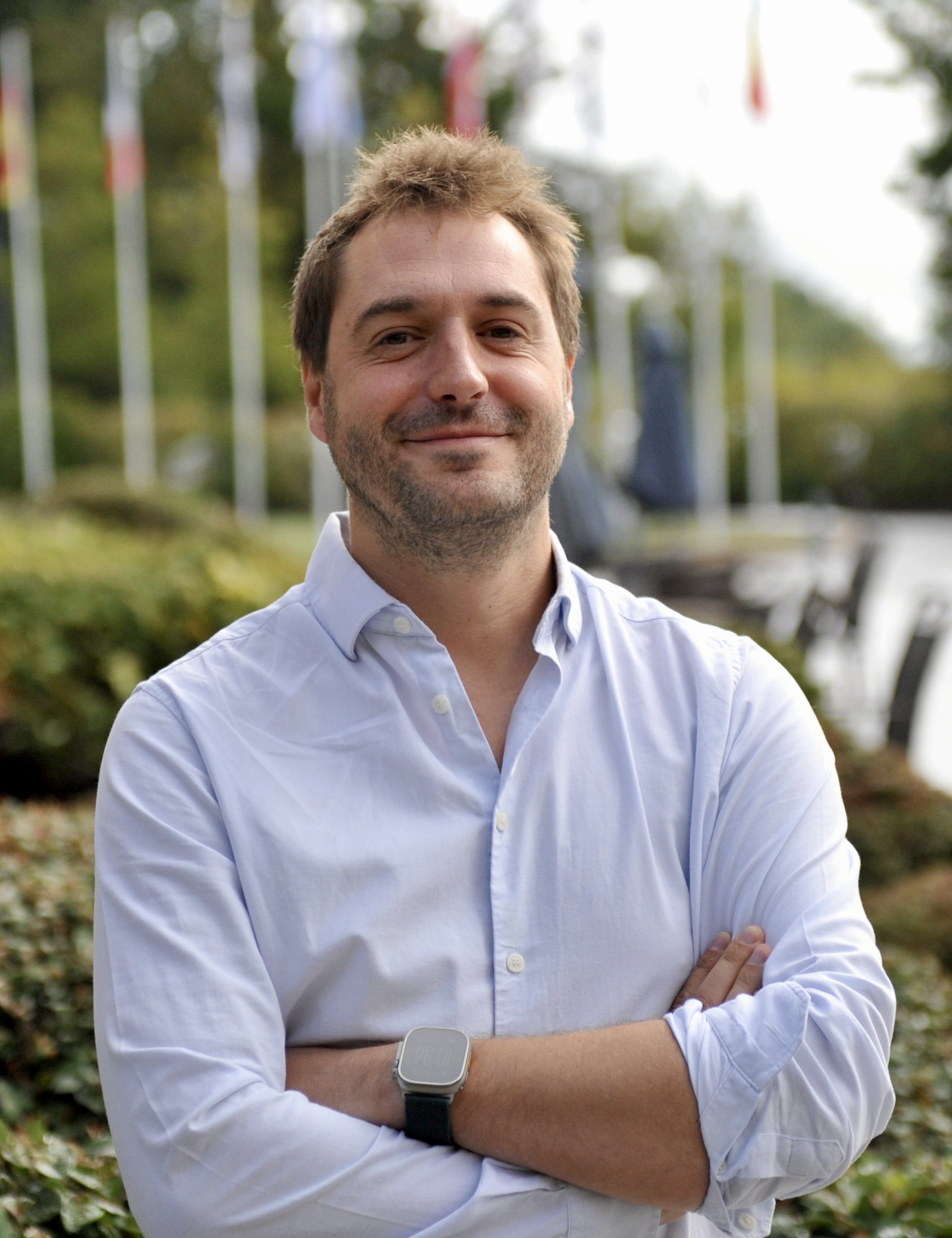
Corentin Carton de Wiart
Corentin Carton de Wiart leads the Data Processing Services Team at the European Centre for Medium-Range Weather Forecasts (ECMWF), focusing on the development of post-processing frameworks for operational weather forecasting. With more than 15 years of experience, his expertise spans scientific and operational software architecture, high-performance computing, computational fluid dynamics, and Earth sciences. Before joining ECMWF in 2018, he worked as a Postdoctoral Researcher at NASA Ames on turbulence modelling and as a Senior Research Engineer at Cenaero, where he earned his PhD in Computational Fluid Mechanics in collaboration with UCLouvain.

